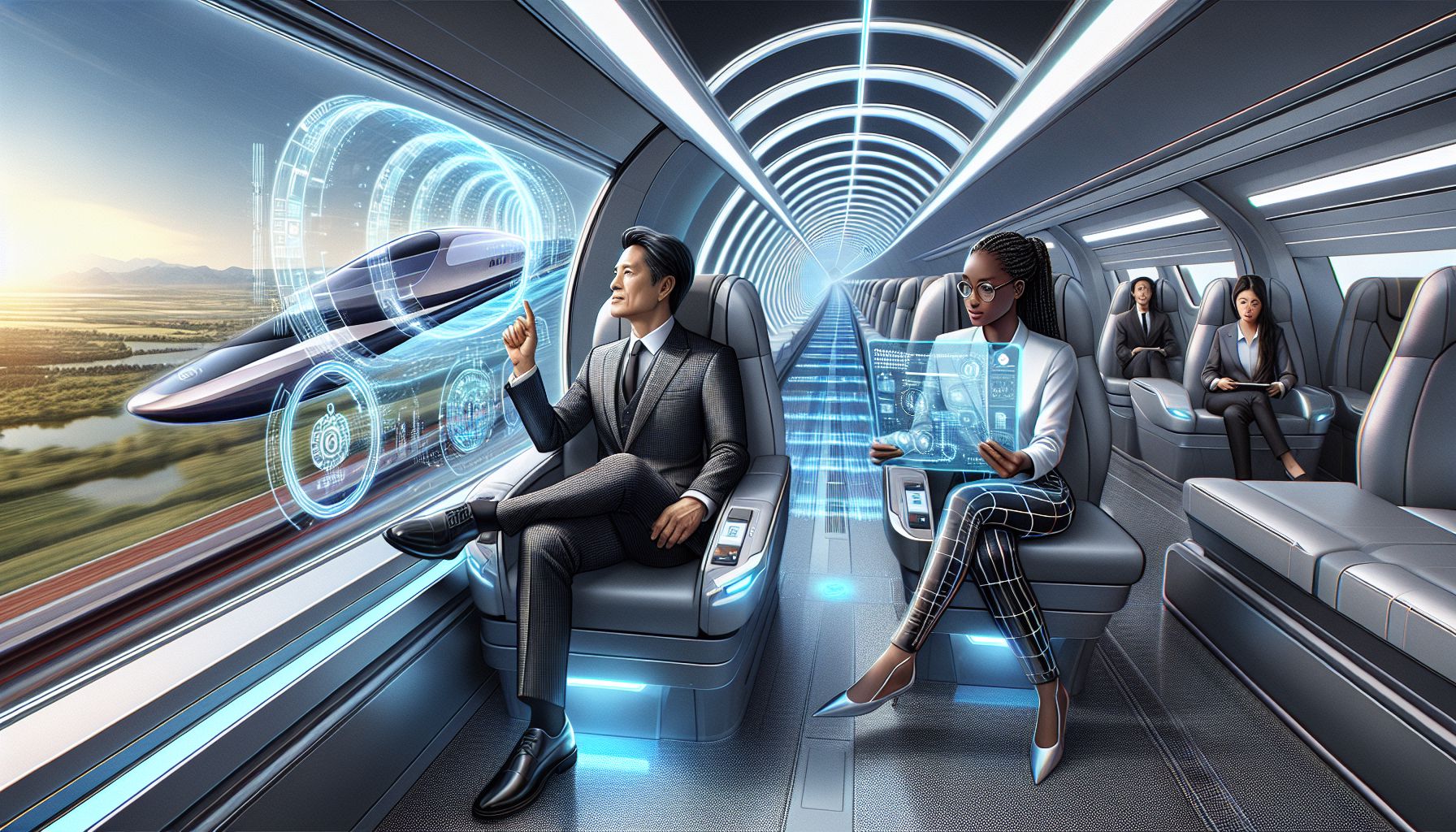The mystical charm of setting off into the sunset, stepping on fresh terrain and breathing in an unfamiliar culture, has always made travel a compelling experience. There’s an irreplaceable tingle, a sense of liberation, as different shades of colour, cuisine, language and attire unfold before our eyes. This voyage into the unfamiliar inevitably pushes us to grow, nurturing a broader perspective toward the delightful tapestry that is our world. As we paddle through the relentless currents of the technologically-induced future, there’s no avoiding the impact of digital evolution on this age-old human fascination.
 The baritone resonance of a porter’s call, the rhythmic lull of a locomotive or the rustle of a worn-out paper map are quickly becoming relics of the past. Today, modern wanderers are armed with an ensemble cast of gadgets and applications that make travel smoother, safer and more immersive.
The baritone resonance of a porter’s call, the rhythmic lull of a locomotive or the rustle of a worn-out paper map are quickly becoming relics of the past. Today, modern wanderers are armed with an ensemble cast of gadgets and applications that make travel smoother, safer and more immersive.
In the travel industry, technology has been a game-changer. From AR-enabled city tours to AI-driven travel suggestions, the blend of tech with travel has remodelled the industry at its core. The ensuing digital transformation is directed not only at convenience but also at enriching the overall experience. Imagine standing in front of the Colosseum, your smartphone augmenting your reality with images of historical gladiatorial battles providing enlightening anecdotes about the structure’s role within the ancient Roman society. This is a future not merely imagined, it is one being built right now.
On a more functional level, technology is also levelling the field. No longer is travel confined to the privileged as budget planning apps and real-time price comparison platforms empower more and more individuals to chase their wanderlust dreams. Even language barriers, long the nemesis of many an explorer, are steadily crumbling with the rise of real-time translation apps.
Despite this, there’s an enticing unpredictability associated with travel that even the most sophisticated algorithm can’t replicate or predict. After all, how can a machine gauge the enchantment of an impromptu Tuscan sunset dinner you happened upon while strolling aimlessly through the countryside? This is the question that underlies the countless future implications of technology in the travel domain.
As with any innovation, the future will likely be peppered with tech-driven facilitation, perhaps even a bit of over-reliance, coupled with newfound challenges. But as we hurtle forward, we must remember the true essence of travel. It’s not merely about reaching a destination or ticking off landmarks from a checklist. It’s about the human element. The interactions, the unexpected detours, the lifelong memories we craft.
Technology should be an aide, a facilitator, not a dictator of these experiences. Balancing this is the challenge that lies ahead for both travel enthusiasts and the industry. It’s a challenge that I believe we’re more than capable of confronting, ensuring that tech-influenced travel enriches our journeys while maintaining the mystery, surprise and organic enchantment that make travelling such a deeply personal and transformative event.


